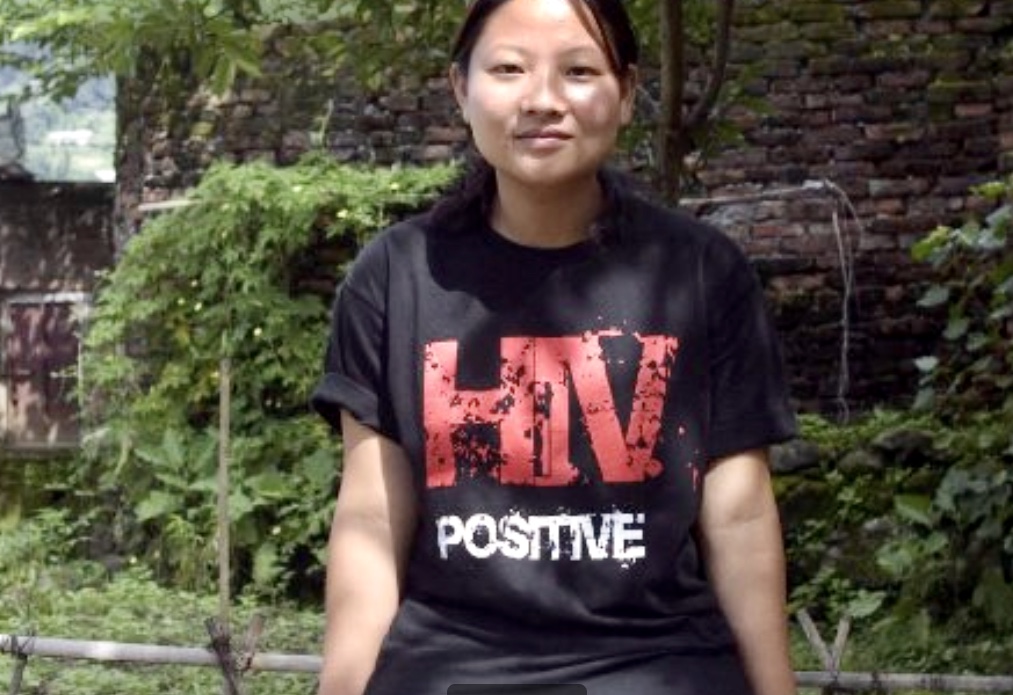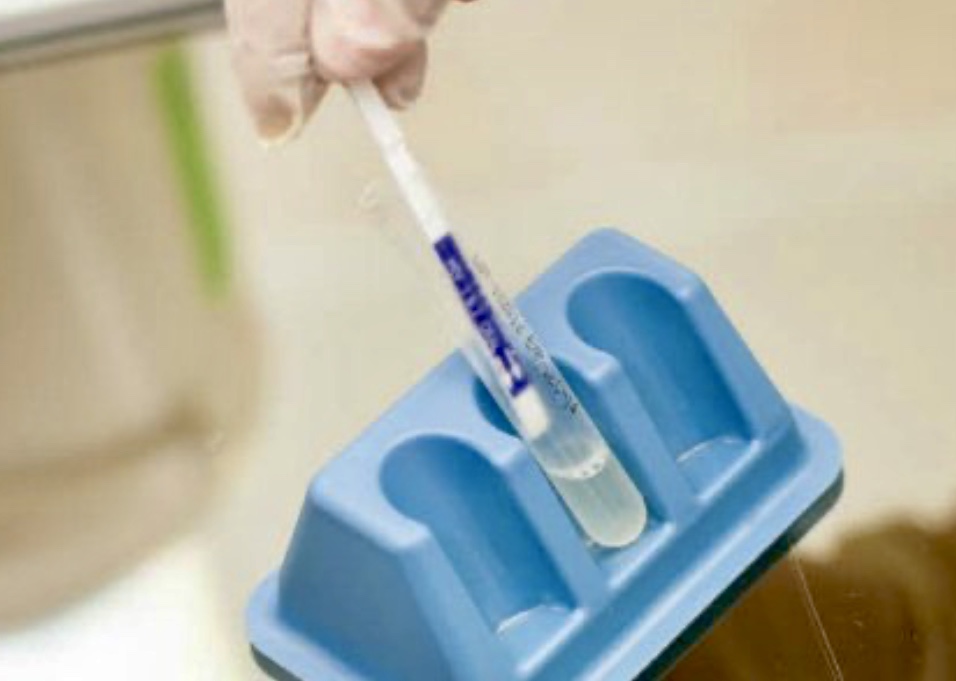
William was only 18 when he went to Metro Manila to study in one of the country’s most prestigious schools. The parents of this Dabawenyo wanted him to be a lawyer. William was an outstanding student during his first year. But after meeting some friends, everything changed.
His friends brought William to a pub one evening. There, the young man was introduced to a beautiful guest relation officer. And the rest, as they say, is history. Since then, William was picking up girls here and there.
Lately, however, he started suffering from a chronic cough that lasted for more than a month. He also experienced itching in several parts of his body, aside from having swollen lymph nodes. William decided to see a doctor and told him his problem. After hearing his woes, the doctor asked William about his sexual lifestyle.
Quite surprised at the question, the young man told his story just the same. After conducting several blood tests on William, he was asked to return a week later.
“I am sorry to tell you this William,” the doctor told him when he returned, “but you are positive of HIV.” HIV stands for human immunodeficiency virus, the virus that causes AIDS (Acquired Immune Deficiency Syndrome).
William felt all the energy drained from him. “I don’t know where I got this disease…” his voice trails off as he recalls his past sex conquests. “Maybe from one of those girls I picked up. Or maybe…”
The story of William is a reminder why the international community observes December 1 as World AIDS Day, which was launched in 1988. This year’s theme is “Global Solidarity, Resilient Services.”

Despite the fact the world is now grappling with the coronavirus disease 2019 (COVID-19), HIV/AIDS is here to stay. “The world has made significant progress since the late 1990s, but HIV remains a major global public health issue,” said the World Health Organization (WHO) in a statement. “And like many other major health issues, it faces additional challenges during the COVID-19 pandemic.”
This is true in the Philippines, where the HIV epidemic is increasing at an alarming rate. “Our country has the fastest-growing HIV infection rate in the Asia-Pacific region,” Dr. Louie Mar A. Gangcuangco, an infectious disease researcher whose expertise in HIV field is recognized internationally, tells EDGE Davao. “This is something we should be concerned about.”
As of July 2020, about 79,082 individuals have been diagnosed with HIV since 1984, 94% of which are males (74,226) and the remaining 6% are females (4,845), records from the Department of Health (DOH) showed. In July alone of this year, 523 persons were newly diagnosed.
The average number of Filipinos newly diagnosed with HIV per day is surging at an alarming rate. Records released by the DOH Epidemiology Bureau showed there were only two people diagnosed with HIV daily in 2008. It increased to 6 in 2011, 16 in 2014, 25 in 2016 and 35 in 2019. For this year, the number of people diagnosed everyday with HIV is 31.
The number of HIV cases in Davao Region fares no better. In the first half of 2019, the region ranked fifth in the country with a total of 3,476 HIV/AIDS cases. About 2,902 of the cases were from Davao City.
Jordana Ramiterre, head of the Davao City Reproductive Health and Wellness Center (RHWC), told the media that most of those who acquired HIV are mostly males. The vulnerable age group are those from 15 to 34 years old, considered as a “reproductive age group.”
Like those with other diseases, people living with HIV are in a serious challenge with the current pandemic. “There is currently no evidence that people living with HIV are at a higher risk of being infected with COVID-19 virus,” said Avert, a UK-based charity that has been providing accurate information about HIV and sexual health around the world.
“Our understanding of the risk of developing severe COVID-19 in people living with HIV is evolving,” Avert said in its website, avert.org. “Current evidence suggests that HIV is less of a risk factor for severe COVID-19 than other health conditions, such as high blood pressure, heart disease, lung disease, cancer, diabetes, or being over a certain age.”
HIV is present in all body fluids of an infected person but is concentrated in blood, semen and vaginal fluids. Virtually, it is present in all body tissues and organs including the brain and spinal cord. It can be found in tears, saliva and breast milk although these last three are not considered significant routes of infection.
A DOH report cited sexual intercourse as the leading mode of transmission in the country. Men having sex with men through anal intercourse, where the penis penetrates the anus of the other person, is currently the leading mode of transmission. Vaginal intercourse, where the penis penetrates the vagina, is the second most common route of transmission.
“A single sexual encounter can be sufficient to transmit HIV,” wrote Dr. John Hubley, author of The AIDS Handbook. “Although the risk from an individual sexual act may be low, the more times a person has sex, the greater the likelihood that transmission will take place. Women appear to be more at risk than men from heterosexual sex. The transmission of HIV from man to woman is believed to take place more easily than from woman to man.”

Injection or infusion of contaminated blood, as occurs with blood transfusions, the sharing of needles or syringes, or an accidental prick from an HIV-contaminated needle is another mode of HIV transmission.
Transfer of HIV is also possible from an infected mother to a child before birth, during birth, or after birth through the mother’s milk. “A few children contract HIV infection through sexual abuse,” informs The Merck Manual of Medical Information.
“HIV is a virus that destroys the immune system,” says Dr. Gangcuangco. “After about 5 years of not knowing that you are infected, if you engage in unprotected sex, the infected person can unwittingly transmit the virus, infecting more people.”
Currently, there is no cure known for HIV but the virus can be controlled with proper medications called antiretrovirals (ARVs).
“HIV can be suppressed by treatment regimens composed of a combination of 3 or more ARV drugs,” the WHO maintains. “Current antiretroviral therapy does not cure HIV infection but highly suppresses viral replication within a person’s body and allows an individual’s immune system recovery to strengthen and regain the capacity to fight off infections.”
RHWC reminds that once taking ARV drugs, it should not be discontinued. “ARV drugs keep HIV under control, but if you stop taking them, your viral load will go up. This means HIV can damage your immune system, and you are more likely to pass HIV on,” it reminds.
“The challenge on managing the rise of HIV in our country continues, and we need you to help in our battle,” HIVepicenter Philippines urges. “We can help stop the spread of HIV if each of the diagnosed people living with HIV start or stick with their treatment. Help ups get the word out. HIV treatment saves lives.”
As COVID-19 continues to take a toll, Avert urges people living with HIV to take the necessary precautions to protect themselves from COVID-19 virus by following the health protocols: washing hands, wearing face mask and face shield, observing physical distancing, and staying home.
In addition, they need to adhere properly to their antiretroviral treatment. Avert recommends the following:
· Try to stock-up on your ARV treatment, so you have enough for at least 30 days, ideally for three months.
· Ensure your vaccinations are up to date (for example influenza and pneumococcal vaccines).
· Make sure you know how to get in touch with your health care facility and that you have a plan in place if you feel unwell and need to stay at home.
The Atlanta-based Centers for Disease Control and Prevention also suggests that people living with HIV should continue to maintain a healthy lifestyle by eating right, getting at least 8 hours of sleep, and reducing stress as much as possible. “Staying healthy helps your immune system fight off infection should it occur,” it points out.
Unlike before, HIV is no death sentence. “If HIV is detected early and if the patient takes antiretrovirals early, the virus can be controlled,” Dr. Gangcuangco assures. “There is still no cure for HIV but the bad effects of the virus can be prevented if medications are taken early.
“I urge everyone who has had unprotected sex to please have an HIV test in your nearest HIV treatment hub/social hygiene clinic,” he urges. “People with HIV need to get tested to prevent damage to their immune system that can cause infections such as pneumonia, tuberculosis, diarrhea that can lead to death.”
In Davao Region, you can call HIV HELPLINE at these numbers: 0949-338-6764 (Smart) or 0977-654-7821 (Globe). It is open from Monday to Friday (except holidays) from 8 am to 4 pm.
The DOH designated HIV treatment hubs and primary HIV care facilities in the region are: Davao Doctors Hospital (Quirino Avenue in Davao City), Southern Philippines Medical Center (in Bajada, also in Davao City), and Davao Regional Medical Center (in Tagum City). – (Photos courtesy of WHO and HIVepicenter)






